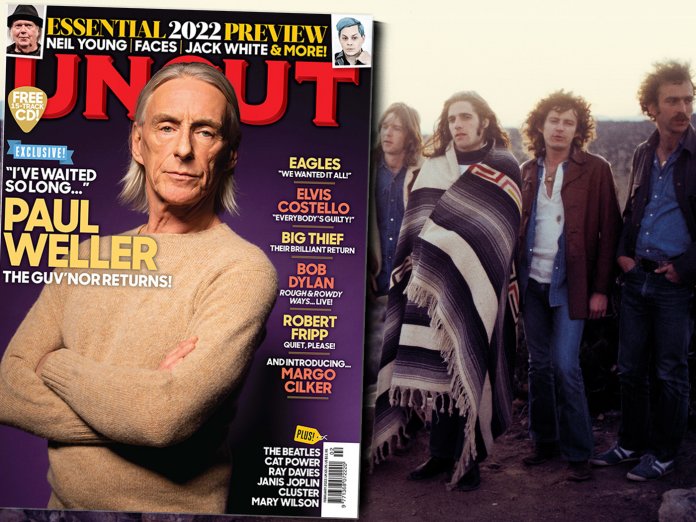February 1972. For these four Americans more used to the temperate Californian climate, London in the depths of winter was not the most propitious place to be. But the intense cold was not the only thing the Eagles had to contend with while they recorded their debut album at Olympic Studios. As guit...
February 1972. For these four Americans more used to the temperate Californian climate, London in the depths of winter was not the most propitious place to be. But the intense cold was not the only thing the Eagles had to contend with while they recorded their debut album at Olympic Studios. As guitarist Bernie Leadon recalls, “We’re really close to getting this one cut – ‘Just one more, come on guys!’ We get it, the final note is struck, and right as that ring-out decayed into nothing, the power went off. The machines all stopped. We went into the control room, because the talkback had cut out. Our producer Glyn Johns said, ‘Well, we’ll just have to listen to it tomorrow…’ It was a blackout, due to the strikes.” Viewed from a distance of 50 years, the irony of the situation is not lost on Leadon.
Here they were, recording laid-back, sun-baked country-rock while crisp layers of frost lay thick on the ground outside the studio and Britain was in the grip of a miners’ strike, causing electricity shortages and power cuts. The album they recorded – including “Take It Easy”, “Witchy Woman” and “Peaceful Easy Feeling” – helped define Southern California’s sound during the early ’70s – yet the temperature in their rented Maida Vale digs rarely rose above zero. Hell might not have frozen over, but the pipes almost certainly did. “It was a huge culture shock,” recalls Don Henley. “Trying to find Mexican food in London… and the burgers were horrible!”
At this point, Leadon and his compadres Glenn Frey, Don Henley and Randy Meisner had only been together six months. Many bands in a similar predicament would perhaps have called it a day. But the Eagles were already well advanced with their masterplan – which had led them to chilly London in the first place, specifically to work with Johns, whose track record – The Beatles, Led Zeppelin, The Who – was unimpeachable. “We weren’t perfectionists,” Henley argues. “We did strive for excellence, and that’s two different things. We just tried to make that Eagles record good. I just want to do the best I can do.”
The four men had been in acclaimed but commercially unsuccessful bands before. This time, they left nothing to chance. As Leadon confirms, “We asked ourselves, ‘What was our MO? What are we doing here?’ We wanted it all. Why not? We wanted artistic success, the approval of our peers, commercial success and to be well paid. We had what we called the LCD Show – Lowest Common Denominator. We rehearsed so that if two guys have flu and two of the others aren’t speaking, most of the audience wouldn’t know. I came to look at bands as entrepreneurial, young businesses. Consistency and discipline is a lot of how we succeeded.”
Consistency? Discipline? These qualities stood the Eagles in great stead – then, as now. Fifty years on, the Eagles will play a run of UK and European shows, including Hyde Park this summer. Only Henley now remains from the original lineup. But in the winter of 1972, for all their uncommon planning and professionalism, the four original Eagles were a happy and united group, with a delicate balance of talent. “They were all equally important,” acknowledges Glyn Johns. “Henley’s strongest contribution was his voice. The same with Frey. Bernie Leadon was great on banjo and guitar, and Randy Meisner was a fine bass player, with a voice of extraordinary range. What I was dealing with was those four people. Without any one of them, it wouldn’t have been the same.”



